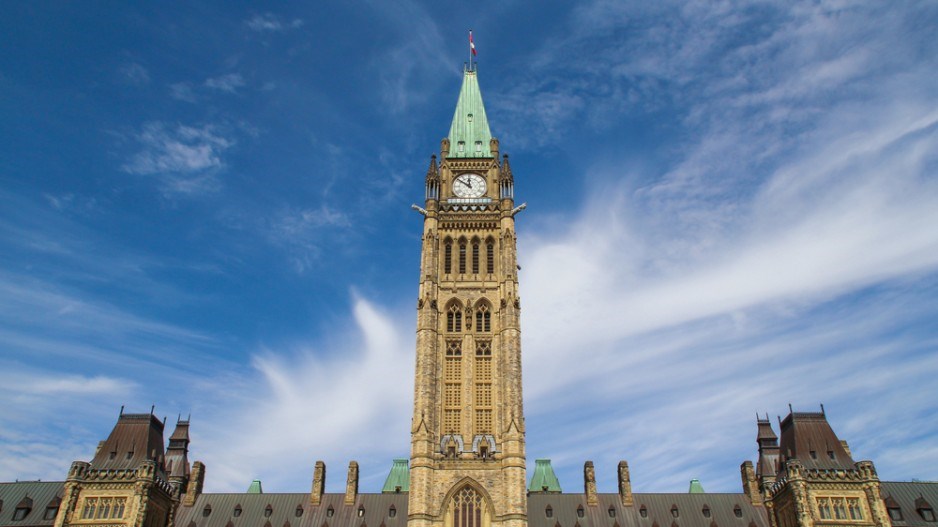As Canadians continue to wonder when social distancing guidelines will be loosened, the level of satisfaction with the way various levels of government have dealt with the COVID-19 outbreak remains high.
However, not all provincial leaders are faring equally, and there is little appetite among Canadians to have a different person in charge of the federal response to the crisis.
Research Co. and Glacier Media began tracking these views last month. In early April, the positive perception among Canadians of their municipal governments increased by five points to 69 per cent. We have seen some cities tightening existing regulations and making changes to things they can control, such as parking enforcement.
The level of support for the actions of the federal government is also high, jumping two points to 68 per cent since March. In two regions – Atlantic Canada and Ontario – more than seven in 10 residents are satisfied with Ottawa’s handling of COVID-19 (78 per cent and 71 per cent, respectively). Majorities of those living in British Columbia (68 per cent), Quebec (67 per cent), Saskatchewan and Manitoba (also 67 per cent) and Alberta (56 per cent) concur.
Back in October, the federal Conservative Party received more votes but won fewer seats than the Liberal Party, leading to a minority government headed by Justin Trudeau. When Canadians are asked if any one of four Conservative politicians would be doing a better job handling this crisis, yearning for change is muted.
A third of Canadians (34 per cent) think former prime minister Stephen Harper would be doing a better job than Trudeau in charge of the COVID-19 file, but one half (50 per cent) disagree. Harper’s numbers on this question are high in Alberta (58 per cent) but drop elsewhere.
Only 25 per cent of Canadians are convinced that current opposition leader Andrew Scheer would be doing a better job than Trudeau on COVID-19. The numbers are even lower for two candidates seeking to supplant Scheer: Peter MacKay (23 per cent) and Erin O’Toole (17 per cent).
MacKay and O’Toole face an added difficulty. While most people who voted for the Conservatives in 2019 believe Harper (68 per cent) and Scheer (51per cent) are better suited for this crisis than Trudeau, the proportion drops to 42 per cent for MacKay – a man who has held four federal cabinet positions – and to 28% for O’Toole.
Compared with March, the level of satisfaction with the actions of provincial governments on COVID-19 improved by seven points to 77 per cent. The way in which Canadians are looking at their premiers, ministers and health authorities is not uniform, especially in the four most populous provinces.
In Quebec, the provincial government improved four points to 88 per cent. Ontario is the biggest gainer, adding 12 points and reaching 78 per cent. British Columbia is slightly up to 72 per cent. Alberta is the only major province with a negative drift, falling eight points to 57 per cent, by far the lowest satisfaction in the country.
Alberta’s weakness becomes more obvious when Canadians are asked if their previous provincial administration would be doing a better job handling this crisis. We must remember that in these four provinces, the current heads of government are all first termers, taking office in 2017 (British Columbia), 2018 (Ontario and Quebec) and 2019 (Alberta).
Voter’s remorse is not a significant issue in British Columbia and Ontario, where just over a third of residents (35 per cent and 36 per cent, respectively) believe Christy Clark and Kathleen Wynne would be doing a better job than John Horgan and Doug Ford.
In Quebec, in spite of the high approval for François Legault and his administration, residents are practically split: 42 per cent stand by the current government while 38 per cent think this crisis would be better handled by former premier Philippe Couillard – a medical doctor.
In Alberta, the numbers are bleak for Jason Kenney. A majority of residents (54%) think former premier Rachel Notley would do a better job handling COVID-19, while 29 per cent prefer the current premier – a 25-point difference.
Two governments with vastly different ideologies – in British Columbia and Ontario – have managed to keep the public happy. There is little longing for premiers Horgan and Ford to be supplanted. Quebecers give Legault’s team the highest approval in the country, but voters are still uttering a “what if” when thinking about Couillard.
Albertans are not particularly thrilled with Kenney, and not all of it is a side-effect of COVID-19. We found in late December 2019 that 56 per cent Albertans thought things would be better with a different premier. At the time, animosity towards Ford in Ontario was higher (60 per cent). A few months later, one is extending beyond the base while the other one’s imploding. The differences between Ontario and Alberta point to a problem that is not rooted in ideology, but in delivery.
At this point, approval of the actions related to COVID-19 taken by Ottawa in Alberta, where the federal Liberals received just 14 per cent of the ballots cast in the last federal election, is practically the same as satisfaction with a provincial government that garnered 55 per cent of the provincial vote in the same calendar year. And while Horgan, Ford and Legault do not need to worry about three retired premiers, Kenney will still face Notley in the legislature. •
Mario Canseco is the president of Research Co.
Results are based on an online study conducted from April 6 to April 8 among 1,000 adults in Canada. The data has been statistically weighted according to Canadian census figures for age, gender and region. The margin of error – which measures sample variability – is plus or minus 3.1 percentage points, 19 times out of 20.


